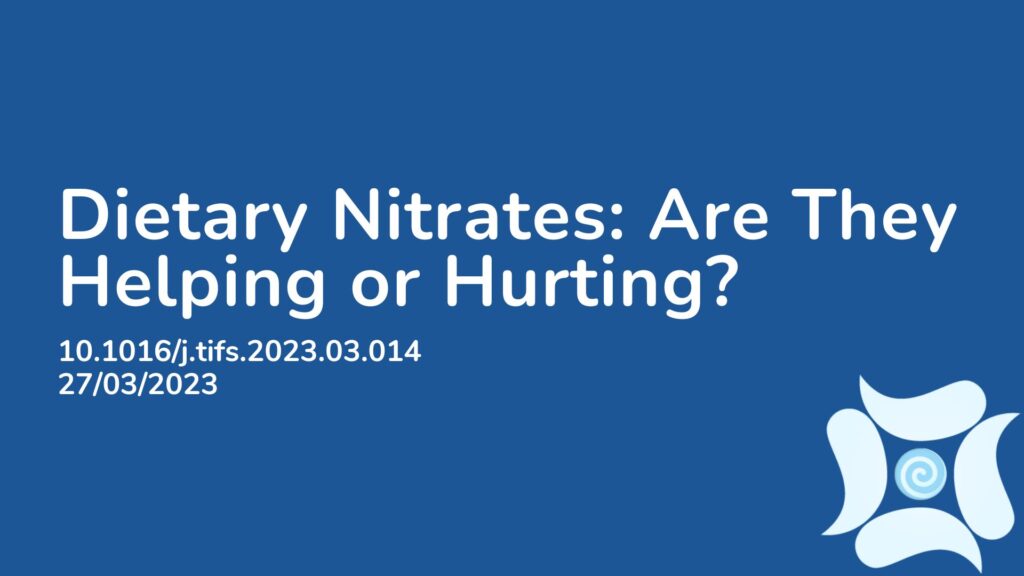Summary:
Dietary nitrates have shown confusing results in literature for decades, with some evidence showing them beneficial for human health whilst others deeming them carcinogenic. Whilst there is sufficient evidence on the benefit of nitrates found in green leafy vegetables in cardiovascular health, a recently published review concluded that “excessive accumulation of nitrates in vegetables is a common issue that poses a potential threat to human health”. This paper examines the belief that nitrates improve cardiovascular, cognitive and musculoskeletal health, as well as exercise performance. It also explores the assumption that all nitrates, irrelevant of their source, can be carcinogenic. The authors concluded that there is insufficient evidence to conclusively say that nitrates sourced from meat, water or vegetables are carcinogenic contaminants and that more definitive studies examining the beneficial or harmful effects of dietary nitrate still needs to be performed before conclusions can be drawn. It is also unknown whether the differing sources of nitrates are equal in harm or benefit.
Abstract:
IBackground: Dietary nitrate has a controversial role in human health. For over half a century, the nitrate content of the three major dietary sources – vegetables, meat, and water – has been legislated, regulated, and monitored due to public health concerns over cancer risk. In contrast, a growing and compelling body of evidence indicates that dietary nitrate, particularly from vegetables, protects against cardiovascular disease and other chronic diseases. This evidence for the protective effect of nitrate is overshadowed by the potential for nitrate to form carcinogenic N-nitrosamines. Scope and approach: The nitrate content, regulations and estimated intake from vegetables, meat and water are described. The evidence that nitrate, through its effects on nitric oxide, improves cardiovascular disease outcomes, cognitive health, musculoskeletal health, and exercise performance as well as the potential to protect against other debilitating health outcomes (nitrate as Dr Jekyll) is discussed. The underlying assumption that all nitrate, irrespective of source, leads to the formation of carcinogenic N-nitrosamines and the evidence of an association between the different sources of nitrate and cancer (nitrate as Mr Hyde) is examined. Key findings and conclusions: The current theory that nitrate, is a carcinogenic contaminant in meat, water, and vegetables is not fully supported by available evidence. Definitive studies examining the beneficial or harmful effects of source-dependent nitrate have yet to be performed. Studies with improved exposure assessment and accurate characterization of factors that affect endogenous nitrosation are also needed to draw conclusions about risk of cancer from dietary nitrate intake.
Article Publication Date: 27/03/2023
DOI: 10.1016/j.tifs.2023.03.014



